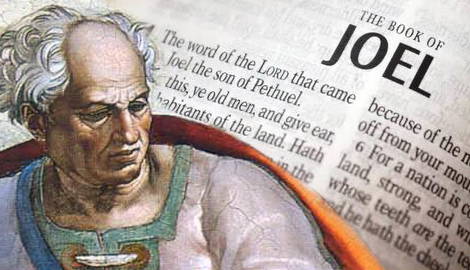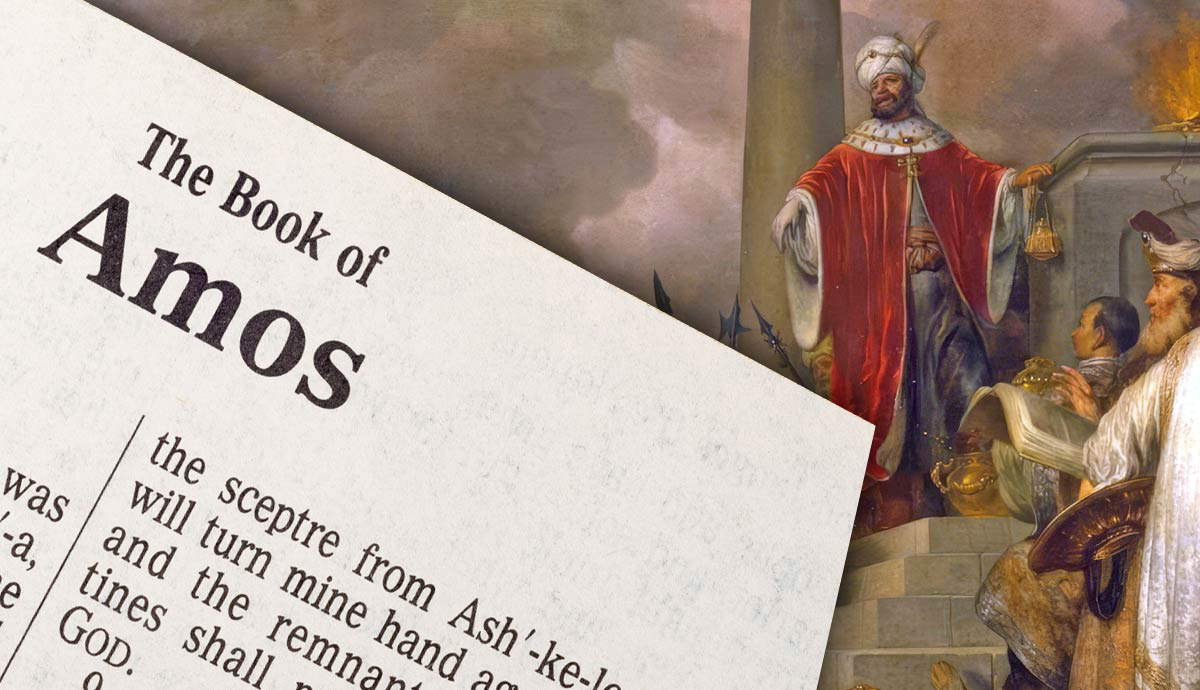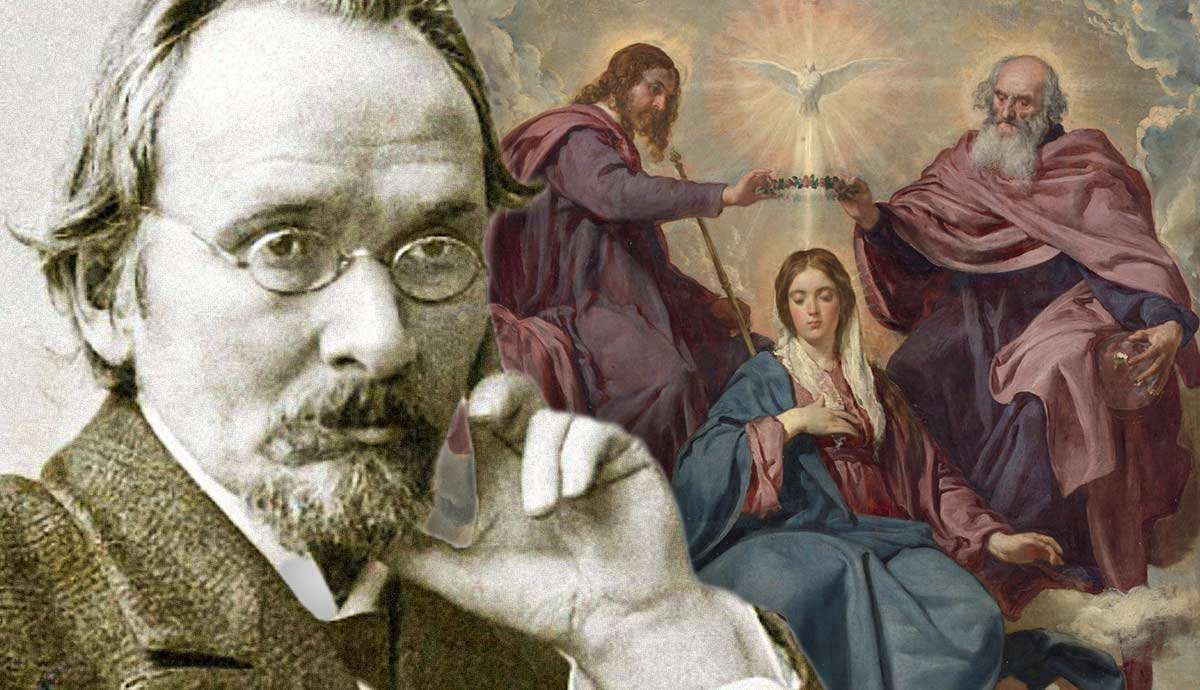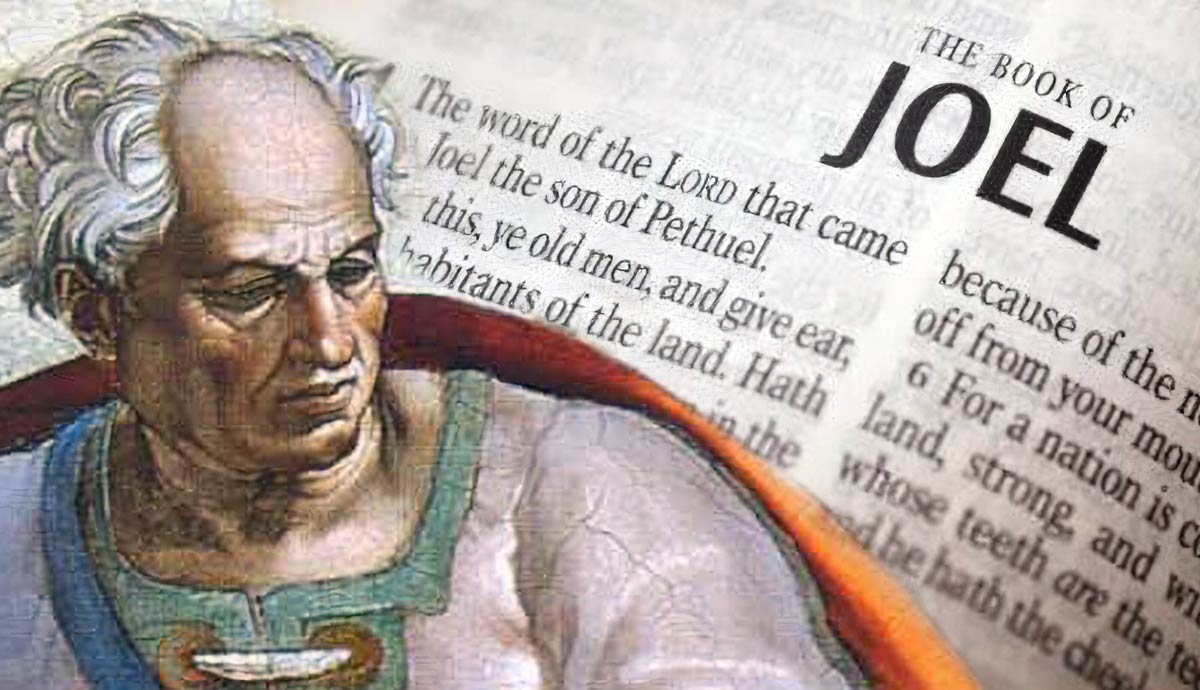
The Book of Joel is one of the most enigmatic books in the Bible. The Bible mentions neither Joel nor his father anywhere except for Peter’s quote from Joel 2:28-32. Like most Minor Prophets, he addressed themes like judgment, repentance, and restoration. He repeatedly referred to the day of the Lord in the context of judgment, which applies to the context of Judah but has a second application on the final judgment of the nations at the end of time.
Authorship and Date

The prophet Joel is somewhat enigmatic. The Old Testament does not mention him outside of the Book of Joel, though Peter quotes from Joel in Acts 2. His father, Penuel, is also an unknown character, which complicates dating the time he ministered with accuracy.
The Book of Joel does not mention Assyria or Babylon, which some scholars argue indicates an early date for his ministry. They suggest the 9th century BCE during the reign of King Jehosaphat. However, the most common view is that the Book of Joel dates to the 8th century BCE, during the reign of King Uzziah. At that time, Assyria was not as influential in the Southern Kingdom of Judah. It would also explain the similarity between the Book of Joel and the prophecies by Amos, Hosea, and Isaiah.
Other scholars suggest a late date for the Book of Joel, placing it in the 5th century BCE after the Babylonian exile. They justify the date by highlighting the idea of the day of the Lord as a late theological development consistent with later prophets like Zachariah and Malachi.
The literary similarities between prophetic works do not say much. Joel shares many similarities with other prophets like Ezekiel, Jeremiah, Micah, and Zephaniah as well.
There are non-biblical legends about Joel, but they are unconvincing. These legends and traditions about Joel include that he was the first “son of the prophets” who emerged from the prophetic schools of ancient Israel, that he authored Lamentations, and that he would play a role in the judgment at the Valley of Jehoshaphat that he mentions in chapter 3:2 and 12.
Historical Context
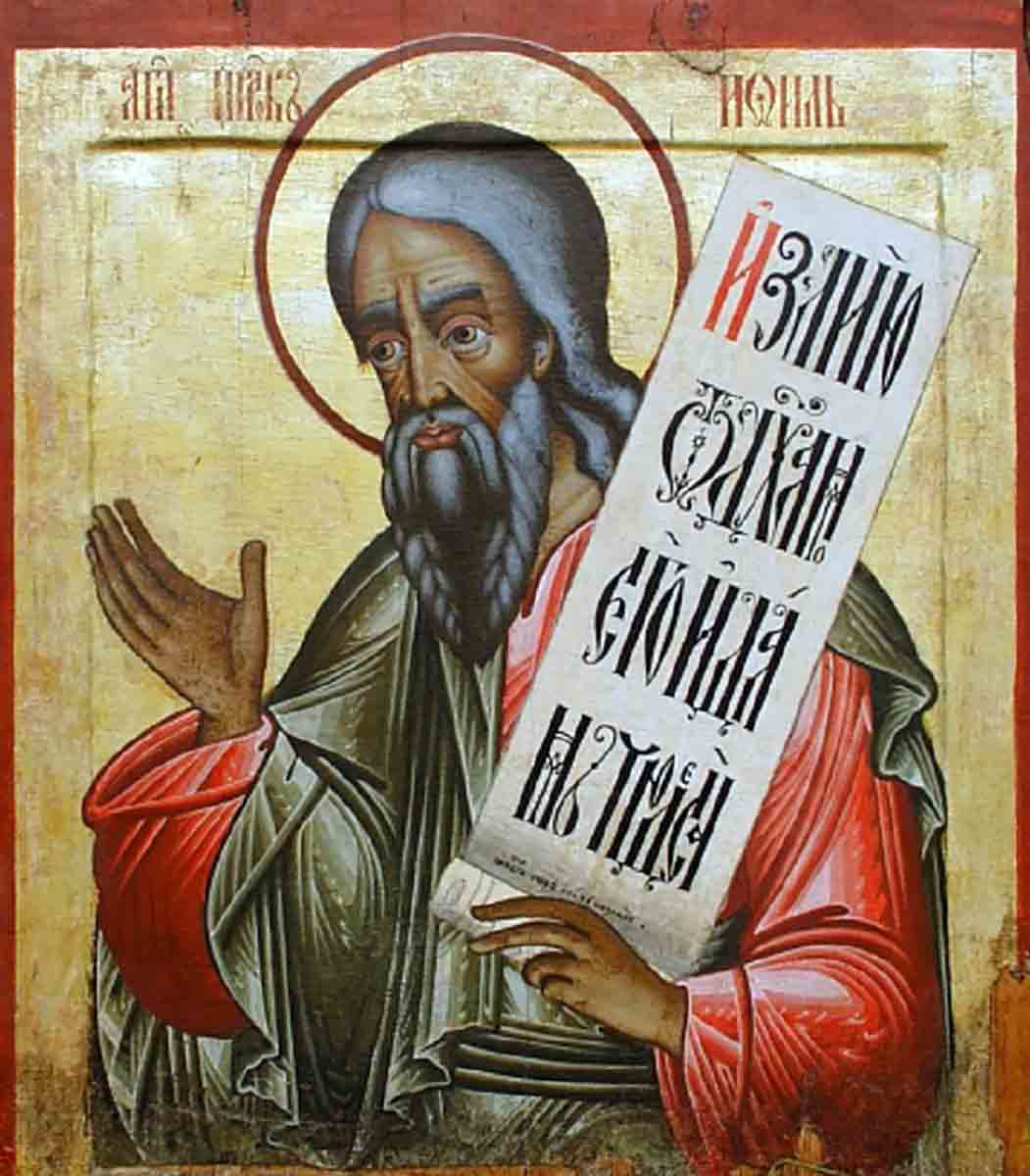
The most common date scholars agree on for the Book of Joel is the 8th Century BCE, which determines the historical context for the book. The monarchy of Israel split into the Northern Kingdom of Israel and the Southern Kingdom of Judah after the death of Solomon. During the early to mid-8th century BCE, while King Uzziah reigned, Judah experienced relative prosperity and political stability with his 52-year reign. The king, however, did not root out idolatry from his nation.
When his son, Jotham, took the throne for 16 years, he continued with his father’s policies, which saw a deepening spiritual decline in the nation. Jotham’s son, Ahaz, was exceptionally wicked. He promoted idolatry and openly worshiped pagan gods. He practiced the abomination of sacrificing his children to pagan gods (2 Kings 16:3). Like his father, he reigned for 16 years. Joel ministered in this context of spiritual decline and idolatry.
Though Joel prophesied to Judah, he would have been aware of the spiritual decline in the kingdom of Israel. Assyria became an increasing threat to the Northern and Southern Kingdoms, though only Israel went into exile to Assyria.
Structure
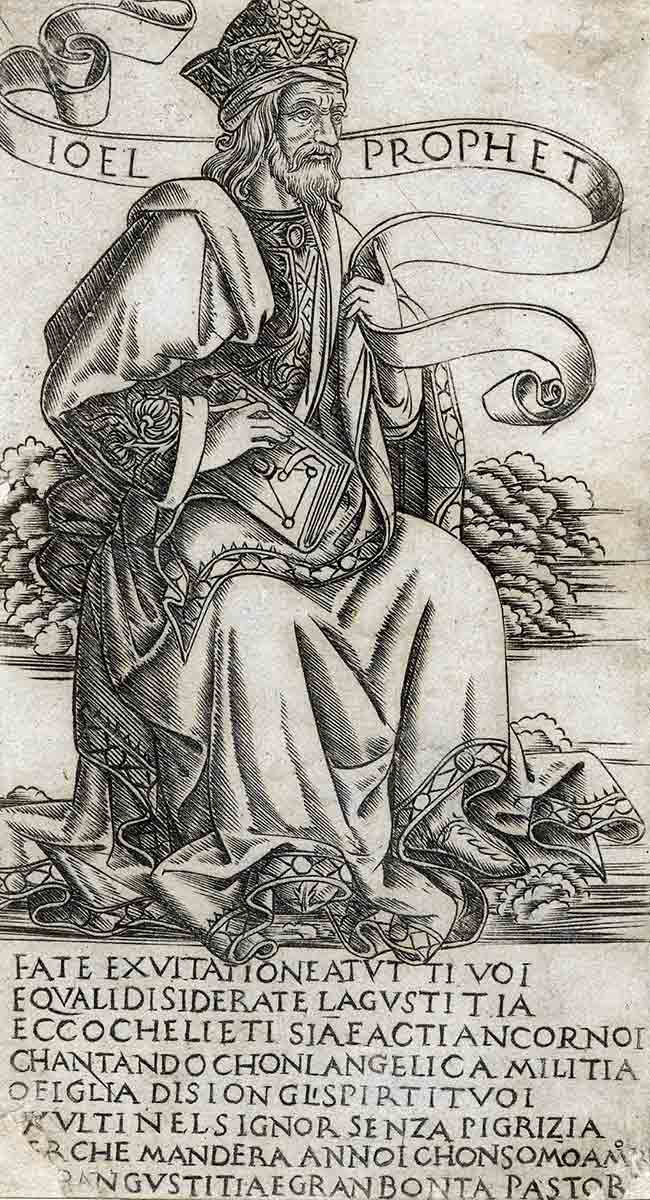
The Day of the Lord Foretold to Judah (Chapters 1:2-2:17)
Judah receives a warning of impending judgment. It starts with a call to mourn and pray for what will befall them. Joel then announces the coming day of the Lord, which he describes as scarcity, destruction, and desolation. The prophet then calls for repentance, a return to God, prayer, fasting, and consecration.
Salvation and Restoration (Chapters 2:18-3:21)
God promises to restore and renew his people if they return to him. They receive assurance that the nations that plundered the Promised Land will receive punishment. Joel ends his message to Judah by highlighting the glorious future they would have.
Main Themes
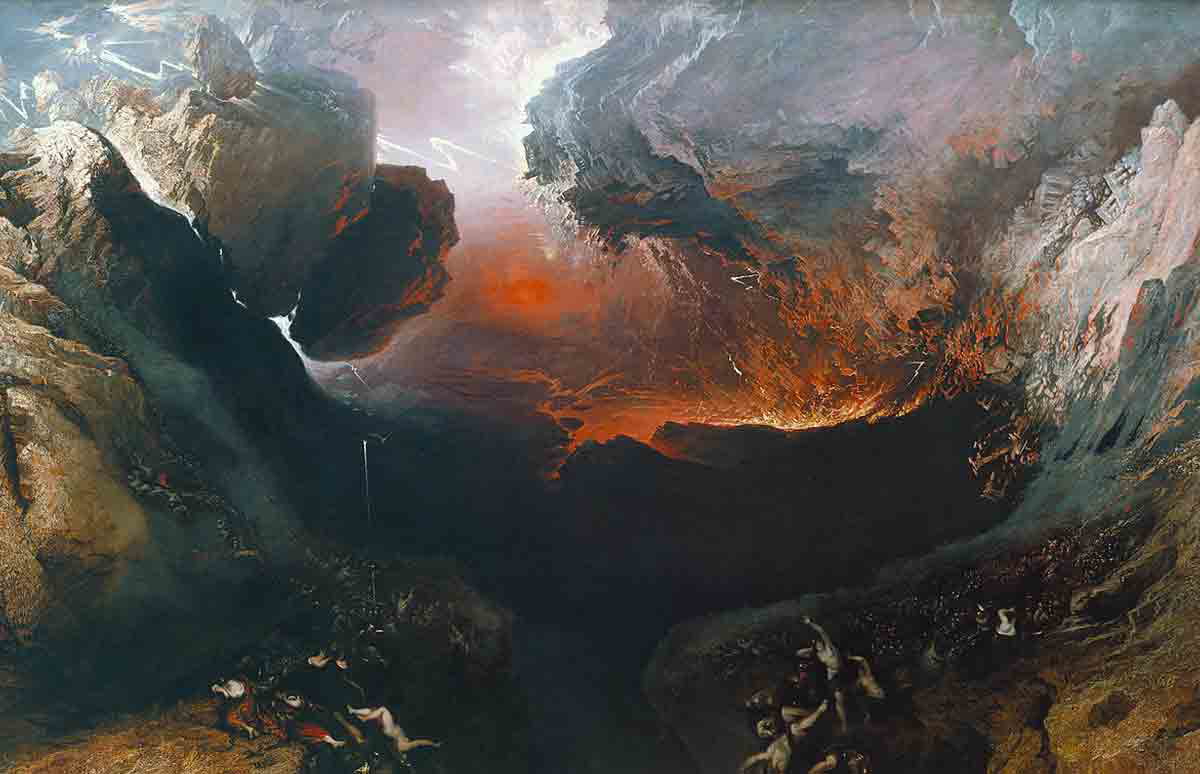
Like most Minor Prophets, the Book of Joel has three themes: judgment, repentance, and restoration.
Judgment
In the Book of Joel, the prophet uses the term “day of the Lord” when he refers to the imminent and cataclysmic event where God will judge. A series of locust plagues serve as a metaphor for the expected destruction. The judgment does not happen in a vacuum. It is the result of the sins of Judah and the nations: idolatry, disobedience, and moral corruption, among many others.
The theme of judgment in Joel does not apply only to Judah. It envisions judgment on all the nations that harmed and plundered Judah.
Repentance
Joel called for true repentance “with all your heart” and the accompanying expressions of mourning, such as fasting, weeping, and rending garments in a sign of rending the heart. Joel 2:14 presents repentance as a possible way to change God’s mind about the judgment if not just the severity of it. The required repentance had to come from people from all spheres of life in Judah: priests, elders, and the rest of the inhabitants of Judah.
Restoration
God’s compassion shows in the promises of restoration and renewal. Where the judgment resulted in scarcity, God promised abundance and prosperity. Spiritual restoration is of even greater importance for its eternal value. Peter interpreted the events of Pentecost as the fulfillment of the prophecy of Joel 2:28-32, which benefitted not only the Jews but all of Christianity.
Key Passages
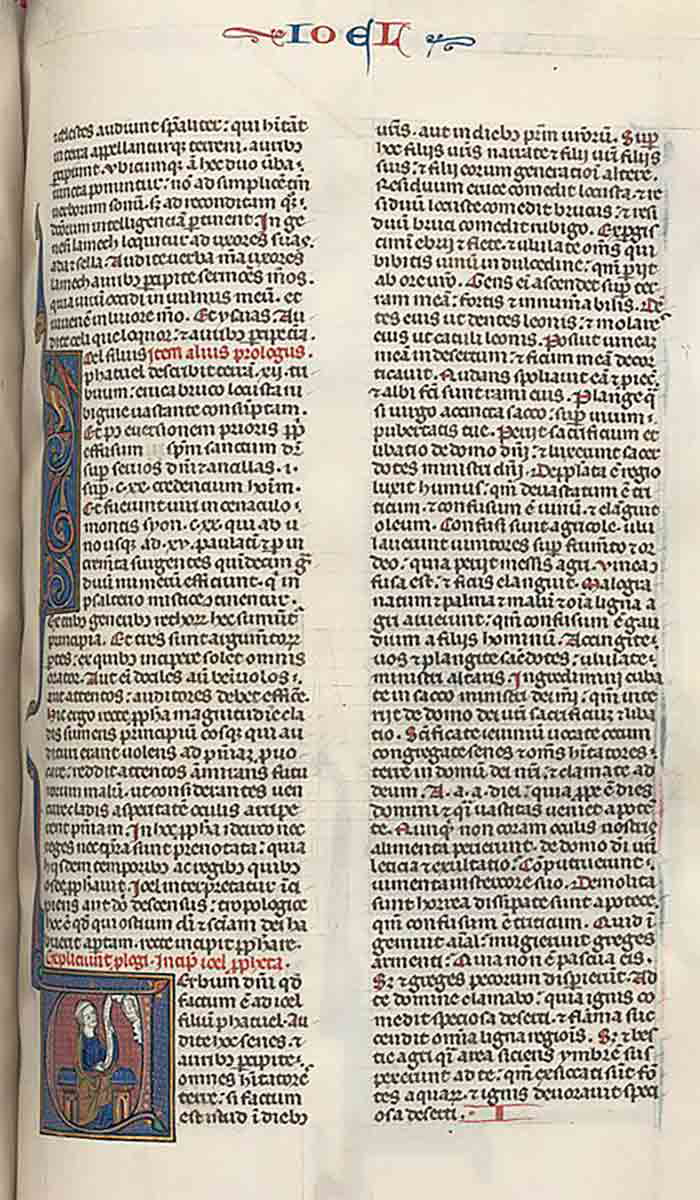
Joel 1:3-5
“Tell your children of it, and let your children tell their children, and their children to another generation. What the cutting locust left, the swarming locust has eaten. What the swarming locust left, the hopping locust has eaten, and what the hopping locust left, the destroying locust has eaten. Awake, you drunkards, and weep, and wail, all you drinkers of wine, because of the sweet wine, for it is cut off from your mouth.”
Joel used vivid imagery of the plagues of locusts to drive home the impending destruction of Judah. Whether the imagery related to an actual plague the nation endured or tapped into the Exodus narrative is unclear. Whichever it was, the destructive consequences were beyond doubt. The repetitive nature of the image emphasizes the utter catastrophe that would result from the sins of Judah.
Joel 2:28-29
“And it shall come to pass afterward, that I will pour out my Spirit on all flesh; your sons and your daughters shall prophesy, your old men shall dream dreams, and your young men shall see visions. Even on the male and female servants in those days I will pour out my Spirit.”
Peter quoted this passage in Joel on the day of Pentecost when the apostle explained that those speaking in tongues were not drunk, as some have presumed. Joel may not have had Pentecost in mind, but rather the restoration of literal Judah. The passage had a dual application that prefigured the day of the outpouring of the Holy Spirit.
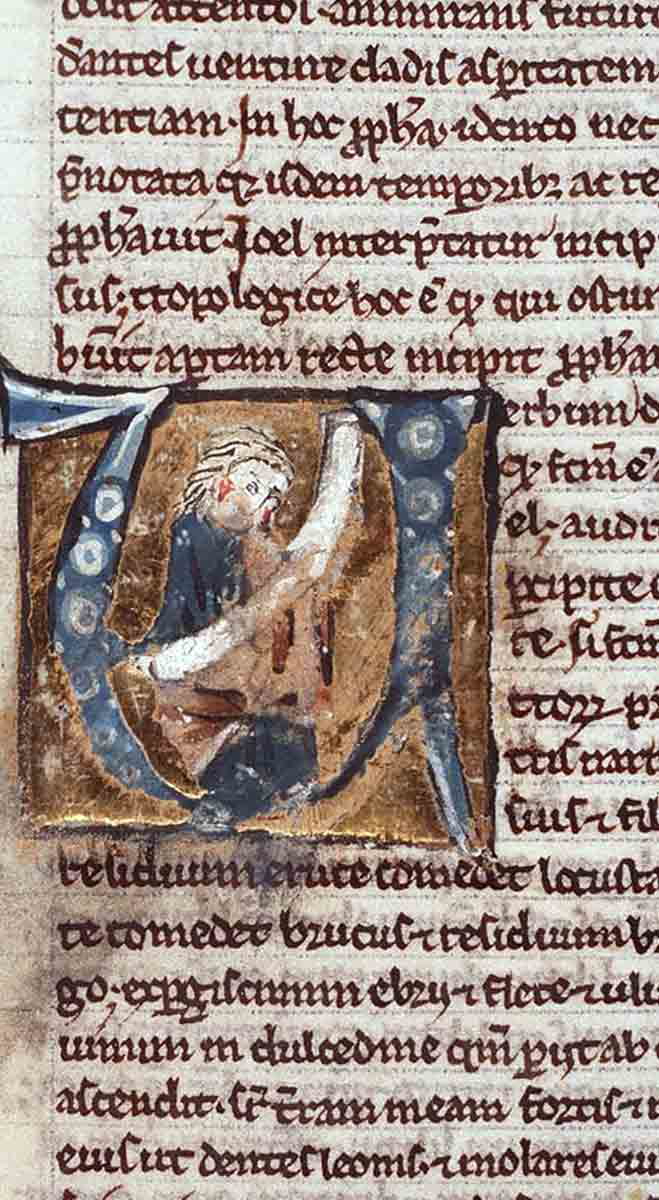
Joel 3:1-2
“In those days and at that time, when I restore the fortunes of Judah and Jerusalem, I will gather all nations and bring them down to the Valley of Jehoshaphat. There I will put them on trial for what they did to my inheritance, my people Israel because they scattered my people among the nations and divided up my land.”
This verse speaks of the judgment of God on the nations that have harmed Israel. The Valley of Jehoshaphat is symbolic of divine judgment. Like Joel 2:28-32, these verses may also have a dual application: one for the time of the restoration of Judah and one for the day of the Lord at the end of time.
Contemporary Relevance
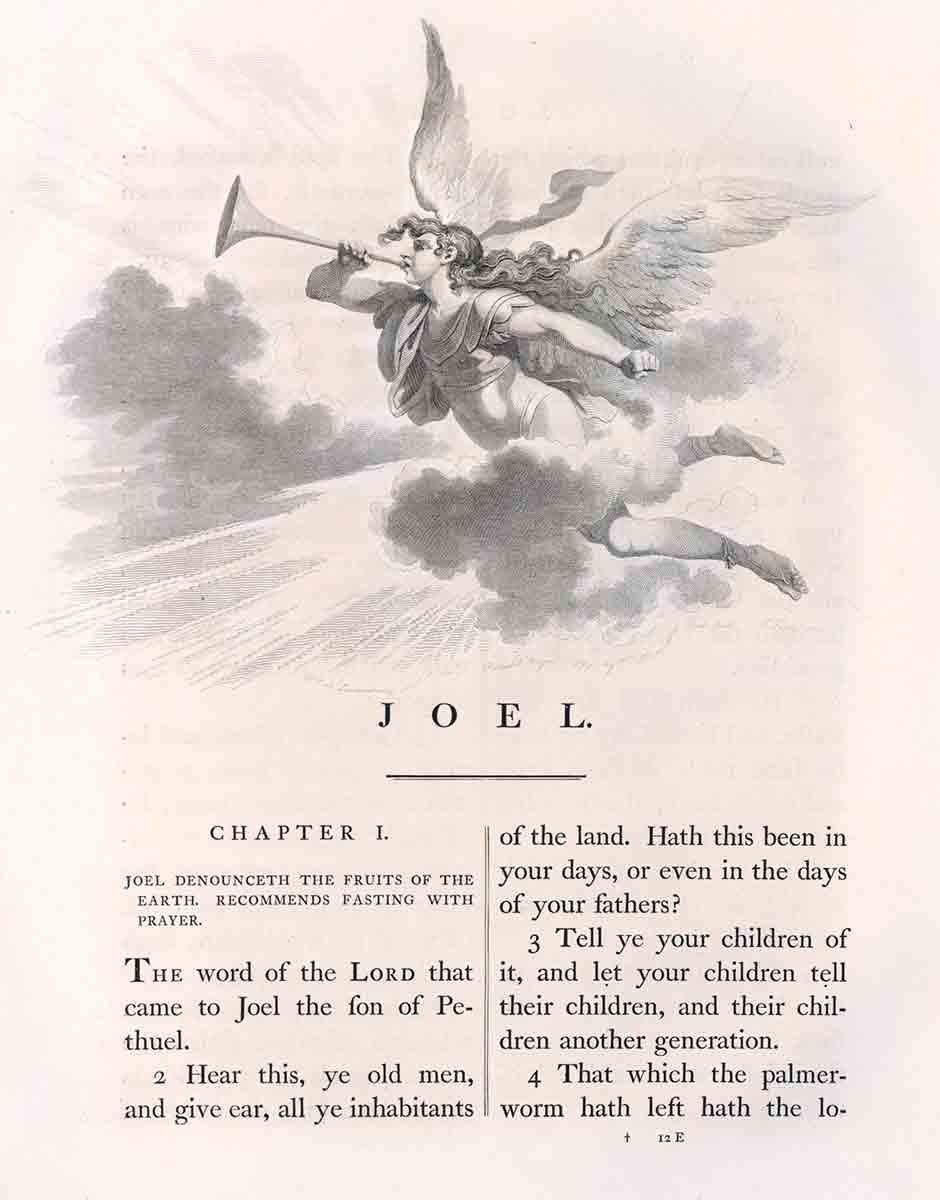
The Book of Joel serves as an example of the consequences of sin and also of the mercy of God. He shows his character by promising mercy and providing assurance of restoration if Judah will repent from their wicked ways and return to God. The book has several sections that have a dual application. The first is for the time of Judah, while the second is for the day of the Lord in the future.
Joel’s warning against spiritual complacency is relevant at all times. In contemporary society, we see similar attitudes to that of Joel’s day: moral decline, materialism, injustice, inequality, and corruption.
To Pentecostals, Peter’s reference to Joel in the context of Pentecost forms the foundation of their belief in the manifestation of tongues and prophecy in “the last days” which they believe refers to the time we live in now.
